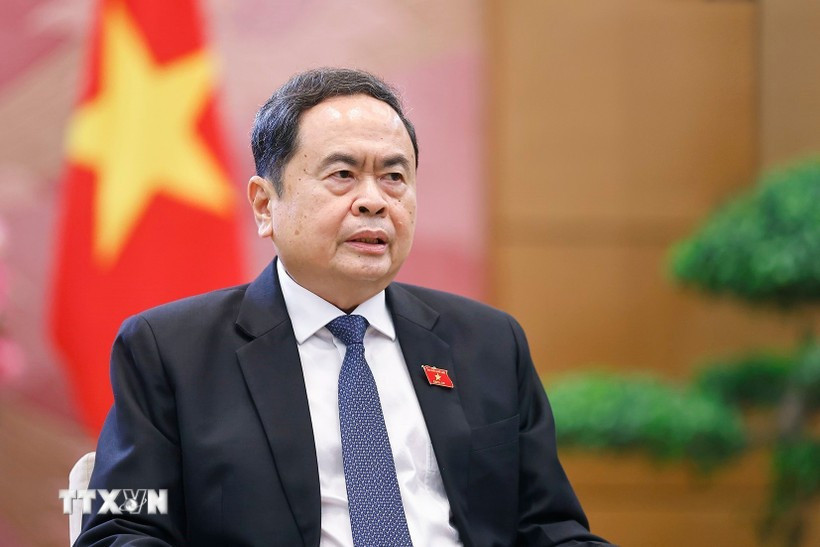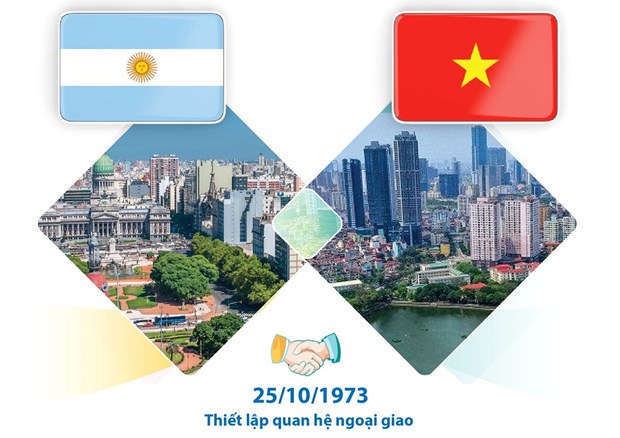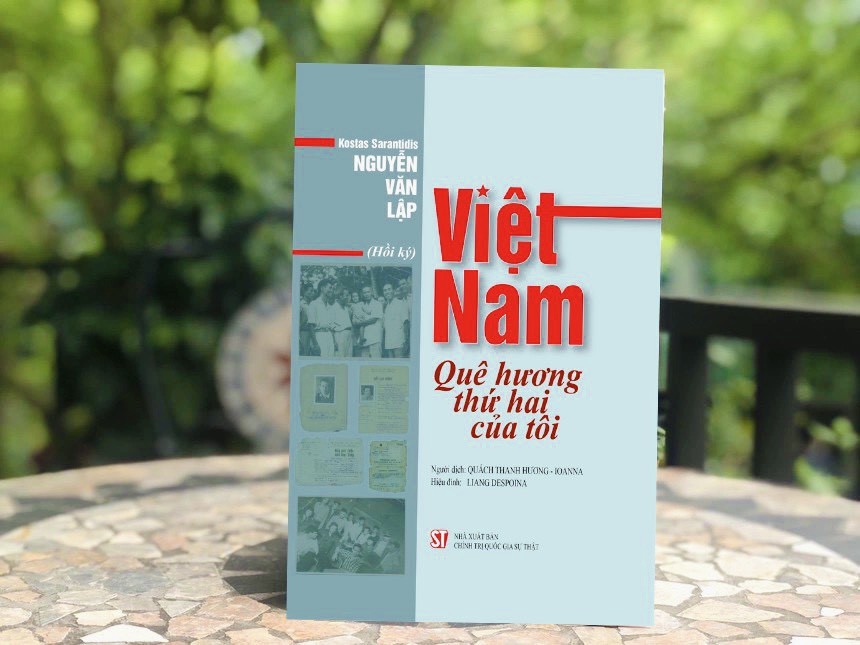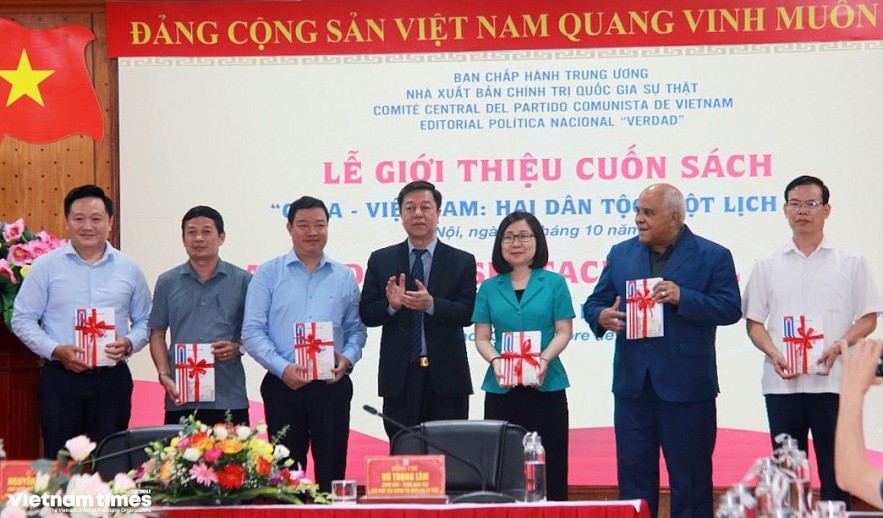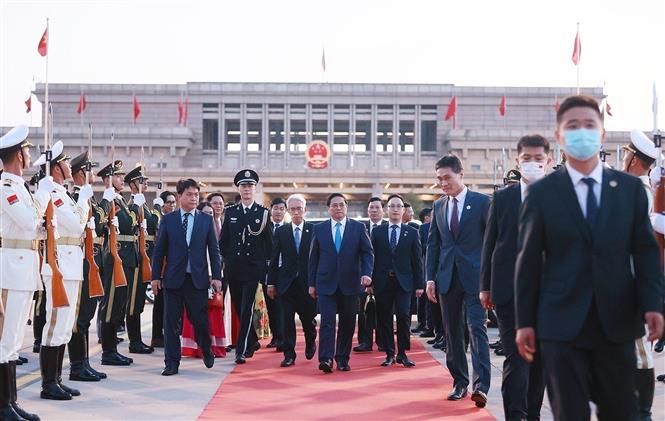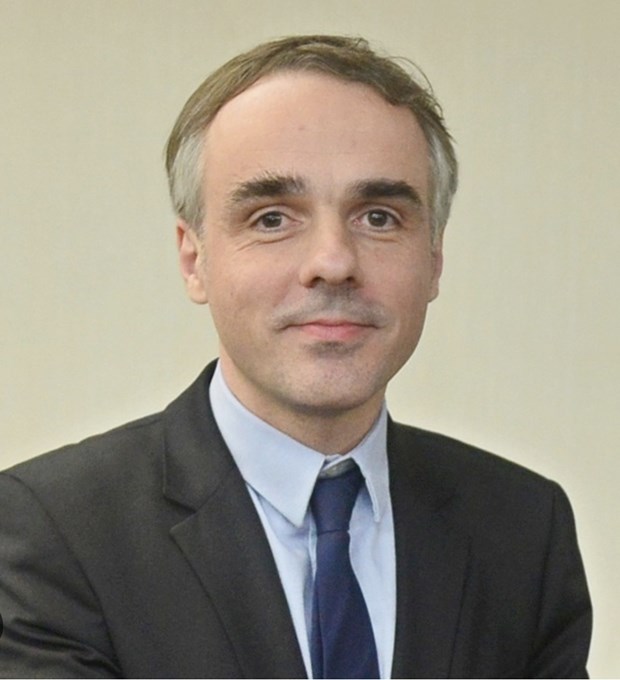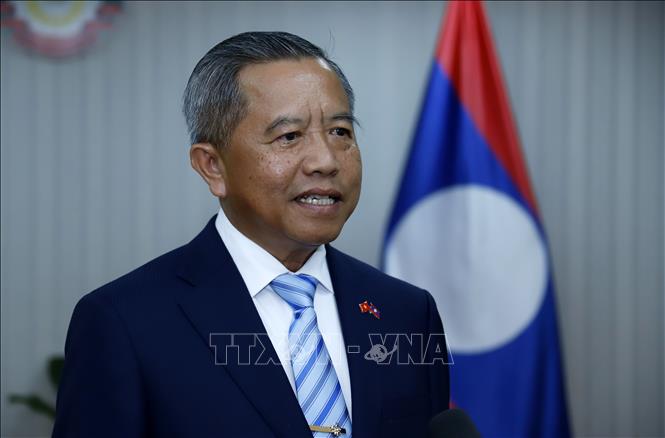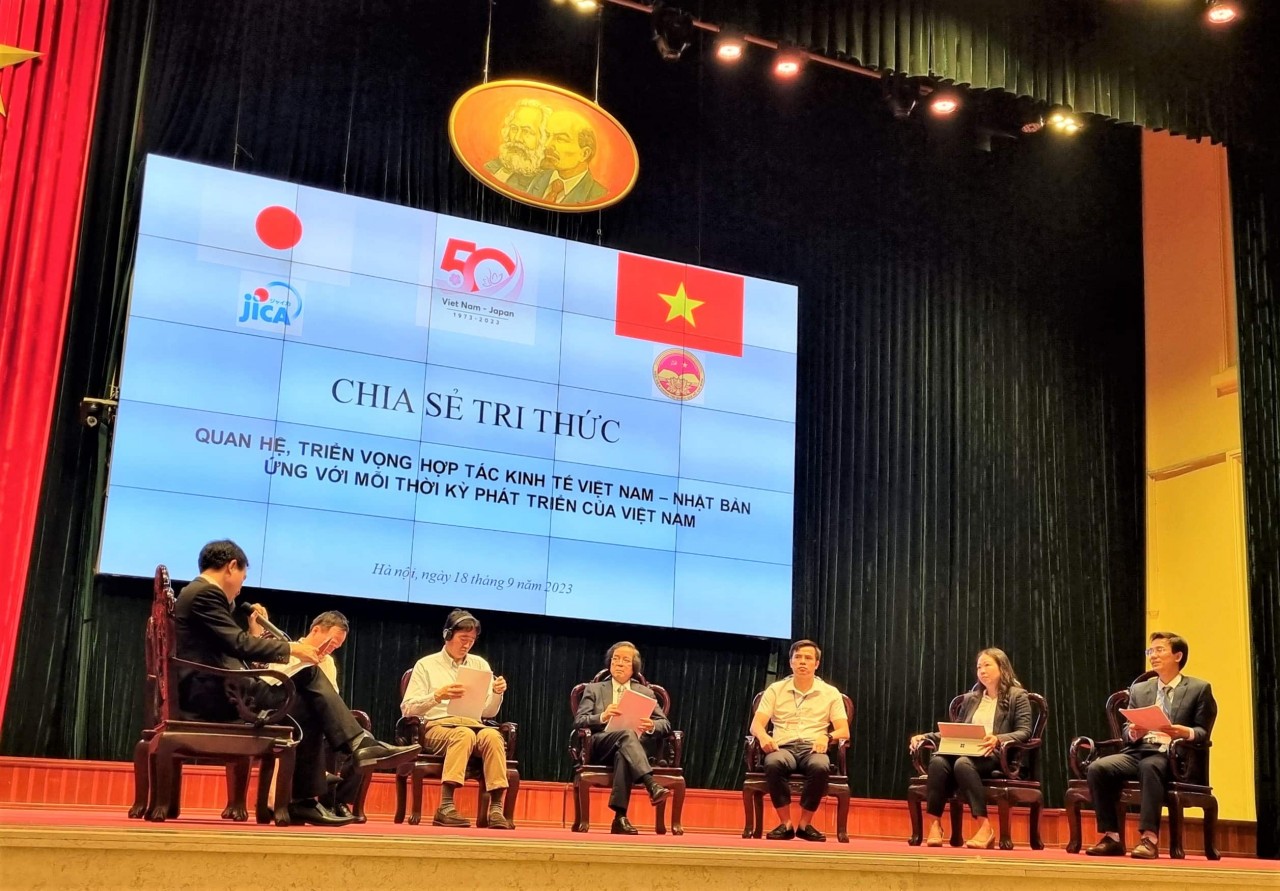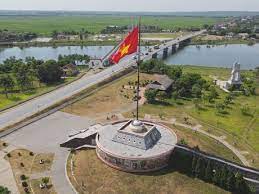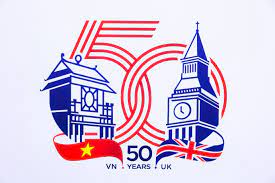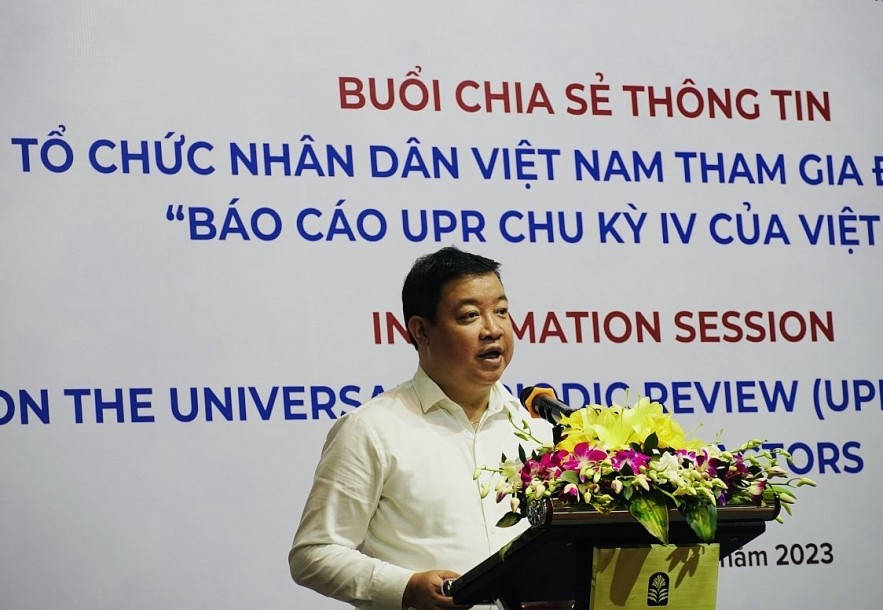 |
| Vice President of the Viet Nam Union of Friendship Organizations (VUFO) Nguyen Ngoc Hung speaks at the information session. |
Speaking at an information session on Vietnam's Fourth Cycle UPR for non-State actors in Hanoi on October 2, Hung said many people’s organizations in Vietnam are working to protect and promote human rights in general and the rights of specific groups in particular.
One of the strengths of people’s organizations is having abundant information about human rights through their activities, especially information related to the enforcement of the State’s laws and policies, and local efforts in protecting and promoting human rights, he added.
Hung noted that throughout the three cycles of the UPR process, VUFO and its member organizations contributed opinions to the national report and submitted reports on Vietnam's human rights situation to the United Nations High Commissioner for Human Rights.
They also sent representatives to deliver speeches at sessions of the UN Human Rights Council regarding Vietnam's UPR report, he went on.
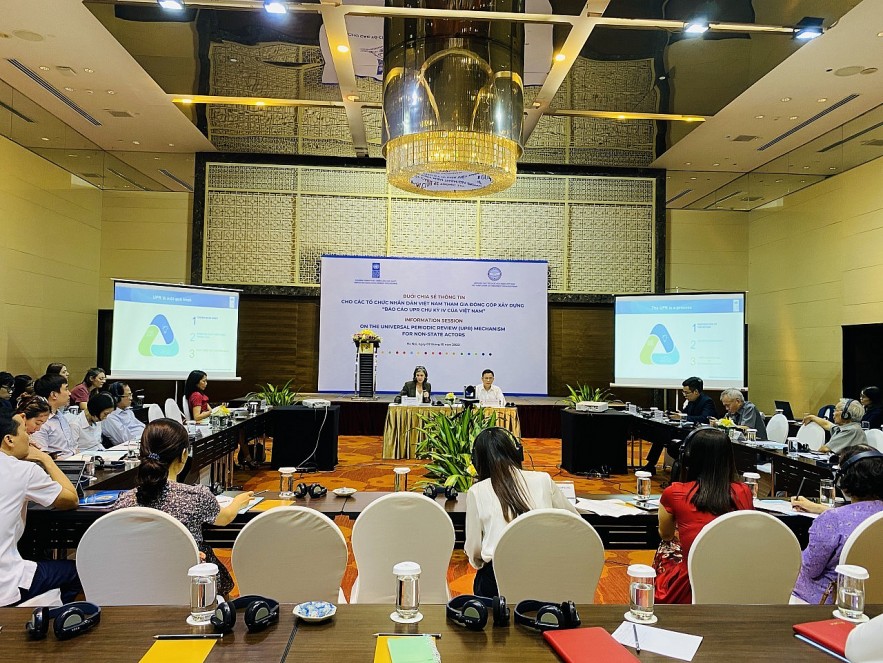 |
| At the information session on Vietnam's Fourth Cycle UPR for non-State actors in Hanoi on October 2. |
UN Resident Coordinator in Vietnam Pauline said the UPR mechanism provides an opportunity to promote positive change and advance human rights at the national level.
By actively participating in the report drafting process, people’s organizations are contributing to a broader dialogue and shaping the future of human rights.
At the event, people’s organizations were informed about UPR building, Vietnam's participation, and the involvement of Vietnamese people’s organizations in the past three UPR cycles.
The delegates were also provided with the necessary skills to effectively contribute to proposals by relevant parties relating to the UPR mechanism.
* The UPR is a unique mechanism of the Human Rights Council that calls for each UN member state to undergo a peer review of its human rights records every 4.5 years.
The UPR provides each state the opportunity to regularly report on the actions it has taken to improve the human rights situations in their countries and to overcome challenges to the enjoyment of human rights; and receive recommendations – informed by multi-stakeholder input and pre-session reports – from UN member states for continuous improvement.
Established in March 2006 by the UN General Assembly in resolution 60/251, the UPR is designed to prompt, support, and expand the promotion and protection of human rights in every country.
Since the first periodic review in 2008, all 193 UN member states have been reviewed three times. The fourth cycle of review began in November 2022, at the 41st session of the UPR Working Group.
Long Pham / Source: Vietnamtimes

